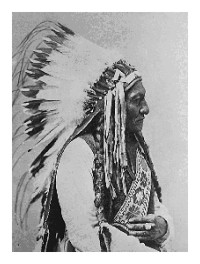Sponsor this page. Your banner or text ad can fill the space above.
Click here to Sponsor the page and how to reserve your ad.
-
Timeline
1875 - Detail
March 1, 1875 - The Civil Rights Act, giving equal rights to blacks in jury duty and accommodation, is passed by the United States Congress.

It would be a bill of epic proportion, even though it proved imperfect in its protection of civil rights. It would be a bill that would attempt to provide fairness to former slaves and free black citizens on the subject of jury dury, accommodation, and other freedoms one decade past the four years of Civil War. Charles Sumner was an strong abolitionist Republican Senator from Massachusetts, who thought that reconstruction would not be complete without legislation that addressed the issues that confronted black citizens in every day life. That was seconded by other Republican leaders in the House of Representatives, including former Union General Benjamin Butler, who co-sponsored the bill. Civil rights leaders in the black community such as Frederick Douglass, John Mercer Langston of Howard University, a future House member, and the newly elected seven black representatives in the House of Representatives, all Republicans, (Richard Cain, SC; Robert Elliott, SC; John Lynch, MS; Joseph Rainey, SC; Alonso Ransier, SC; James Rapier, AL; Josiah Walls, FL) echoed the call for legislation. The debate in Congress centered around just what role the federal government should take, and expand, over the states, after their passage of the Reconstruction amendments, 13th, 14th, and 15th.
The opportunity arose as the Senate debated a bill regarding amnesty for Confederates. Adding protections for those harmed by the South prior to, and continuing, after the war ended, was needed. The debate centered around issues of accommodations, schools, jury selection, transportation, and churches.
"Every day my life and property are exposed, are left to the mercy of others, and will be so long as every hotel-keeper, railroad conductor, and steamboat captain can refuse me with impunity," stated African American Representative James Rapier of Alabama. "... After all, this question resolves itself into this: either I am a man or I am not a man."
"What you give to one class you must give to all. What you deny to one class. You deny to all," South Carolina Representative Robert B. Elliott.
In order to gain passage, an unfortunate compromise was made. The part of the bill that protected children and prohibited racial segregation in schools was removed.
The bill would pass the House of Representatives on February 4, 1875 by a vote of 162 to 99. Three weeks later, it would pass the Senate by a vote of 38 to 26 on February 27, 1875. The bill would go into effect on March 1, 1875 after it was signed by President U.S. Grant.
Text of the 1875 Civil Rights Act
Whereas, it is essential to just government we recognize the equality of all men before the law, and hold that it is the duty of government in its dealings with the people to mete out equal and exact justice to all, of whatever nativity, race, color, or persuasion, religious or political; and it being the appropriate object of legislation to enact great fundamental principles into law:
Therefore,
Be it enacted by the Senate and House of Representatives of the United States of America in Congress assembled, That all persons within the jurisdiction of the United States shall be entitled to the full and equal enjoyment of the accommodations, advantages, facilities, and privileges of inns, public conveyances on land or water, theaters, and other places of public amusement; subject only to the conditions and limitations established by law, and applicable alike to citizens of every race and color, regardless of any previous condition of servitude.
SEC. 2. That any person who shall violate the foregoing section by denying to any citizen, except for reasons by law applicable to citizens of every race and color, and regardless of any previous condition of servitude, the full enjoyment of any of the accommodations, advantages, facilities, or privileges in said section enumerated, or by aiding or inciting such denial, shall, for every such offense, forfeit and pay the sum of five hundred dollars to the person aggrieved thereby, to be recovered in an action of debt, with full costs; and shall also, for every such offense, be deemed guilty of a misdemeanor, and, upon conviction thereof, shall be fined not less than five hundred nor more than one thousand dollars, or shall be imprisoned not less than thirty days nor more than one year . . .
SEC. 3. That the district and circuit courts of the United States shall have exclusively of the courts of the several States, cognizance of all crimes and offenses against, and violations of, the provisions of this act . . .
SEC. 4. That no citizen possessing all other qualifications which are or may be prescribed by law shall be disqualified for service as grand or petit juror in any court of the United States, or of any State, on account of race, color, or previous condition of servitude; and any officer or other person charged with any duty in the selection or summoning of jurors who shall exclude or fail to summon any citizen for the cause aforesaid shall, on conviction thereof, be deemed guilty of a misdemeanor, and be fined not more than five thousand dollars.
SEC. 5. That all cases arising under the provisions of this act ... shall be renewable by the Supreme Court of the United States, without regard to the sum in controversy ...

Outcome of the Legislation
While the goals of its proponents were shared by many, the legislation had immediate detractors who sought to overturn many of its components. It was not supported by the general public or the media. There were questions about the constitutionality of controlling the actions of private businesses, as well as whether the federal government could put requirements on state and local juries. Almost immediately, enforcement was sporadic. Although President Grant had signed the bill, he favored other legislation that would ensure the safety of black and Republicans in elections in the South, and did little to back the bill.
In 1883, the Supreme Court of the United States declared sections of the bill unconstitutional, basing much of its decision on the fact that the 14th Amendment banned discrimination by state and local governments, but gave no power for the federal government to ban it for private individuals or businesses. It would be over seventy-five years before major Civil Rights legislation would again pass Congress with the Civil Rights Bill of 1957.
Photo above: Montage (left) portion of the lithograph, "The Shackle Unbroken - by the Genius of Freedom," showing U.S. House of Representative James Rapier making speech for the Civil Rights Bill of 1875, 1874, E. Sachse & Co. Courtesy Library of Congress; (right) Civil Rights Bill, handwritten, 1875. Courtesy National Archives via Senate.gov. Below: Montage of (left) Representative Robert B. Elliott, Black Americans in Congress. Office of the Clerk, U.S. House of Representatives; (center) James Mercer Langston, circa 1860/1875, Brady-Handy Photograph Collection; (right) Representative James Rapier, Black Americans in Congress. Office of the Clerk, U.S. House of Representatives. All courtesy Wikipedia Commons. Info Source: Senate.gov; history.house.gov; sharetngov.com; americanclass.org; Wikipedia Commons.






